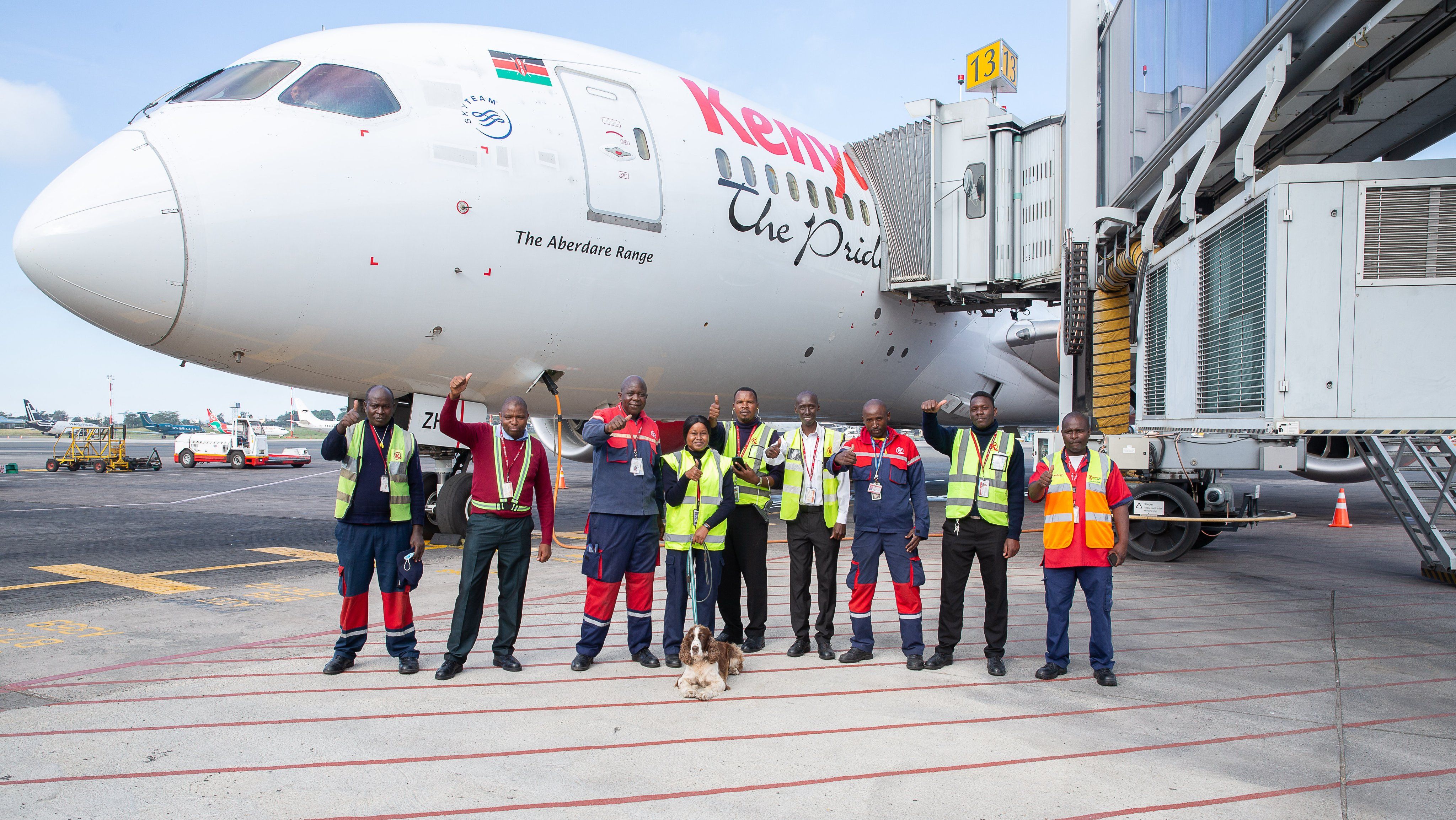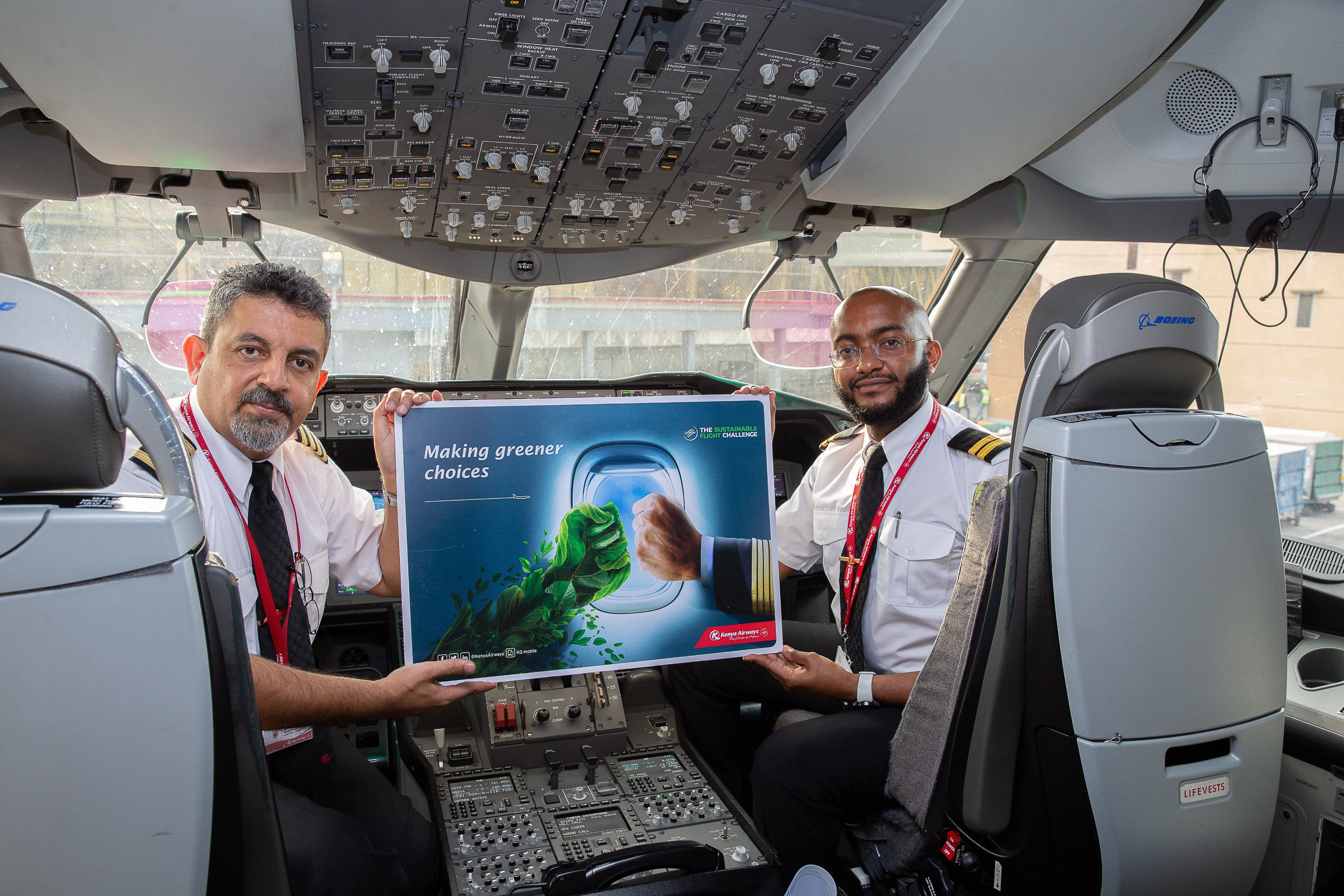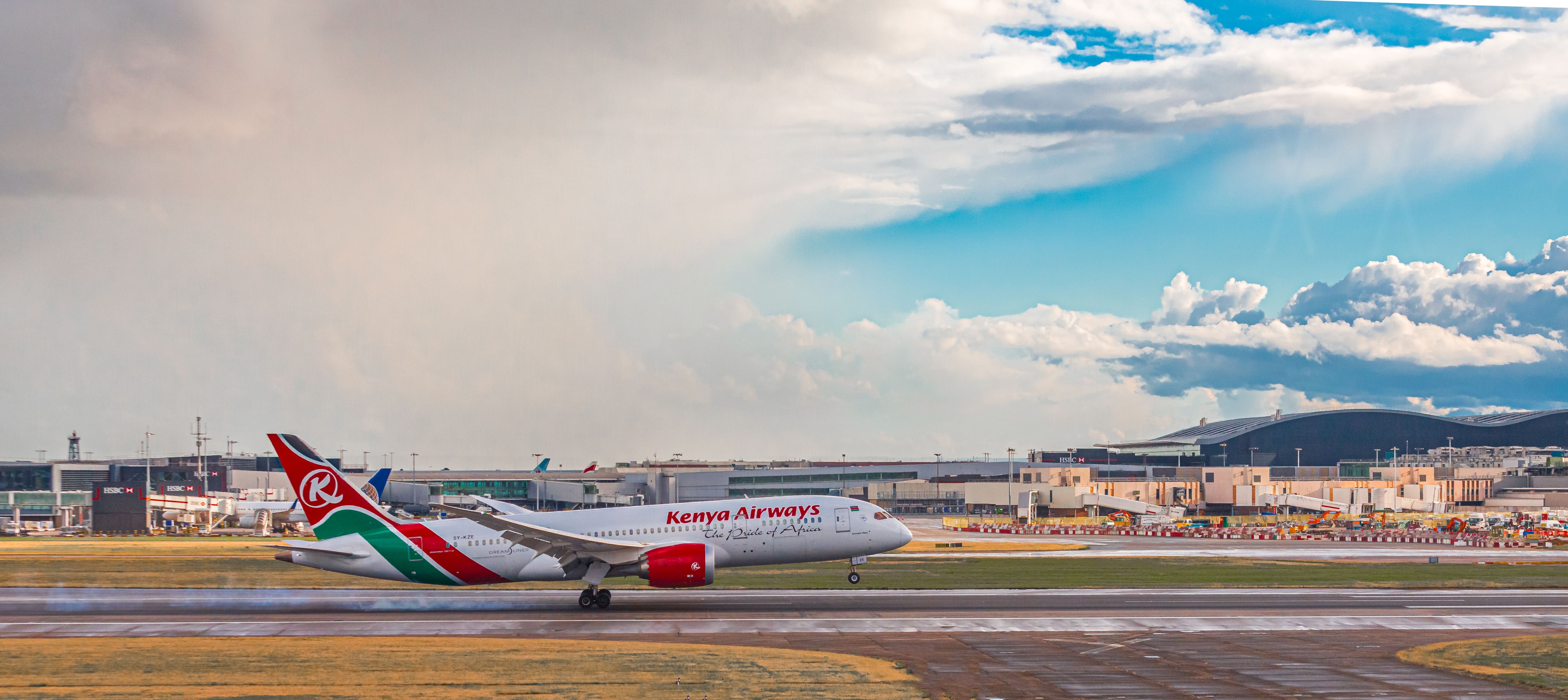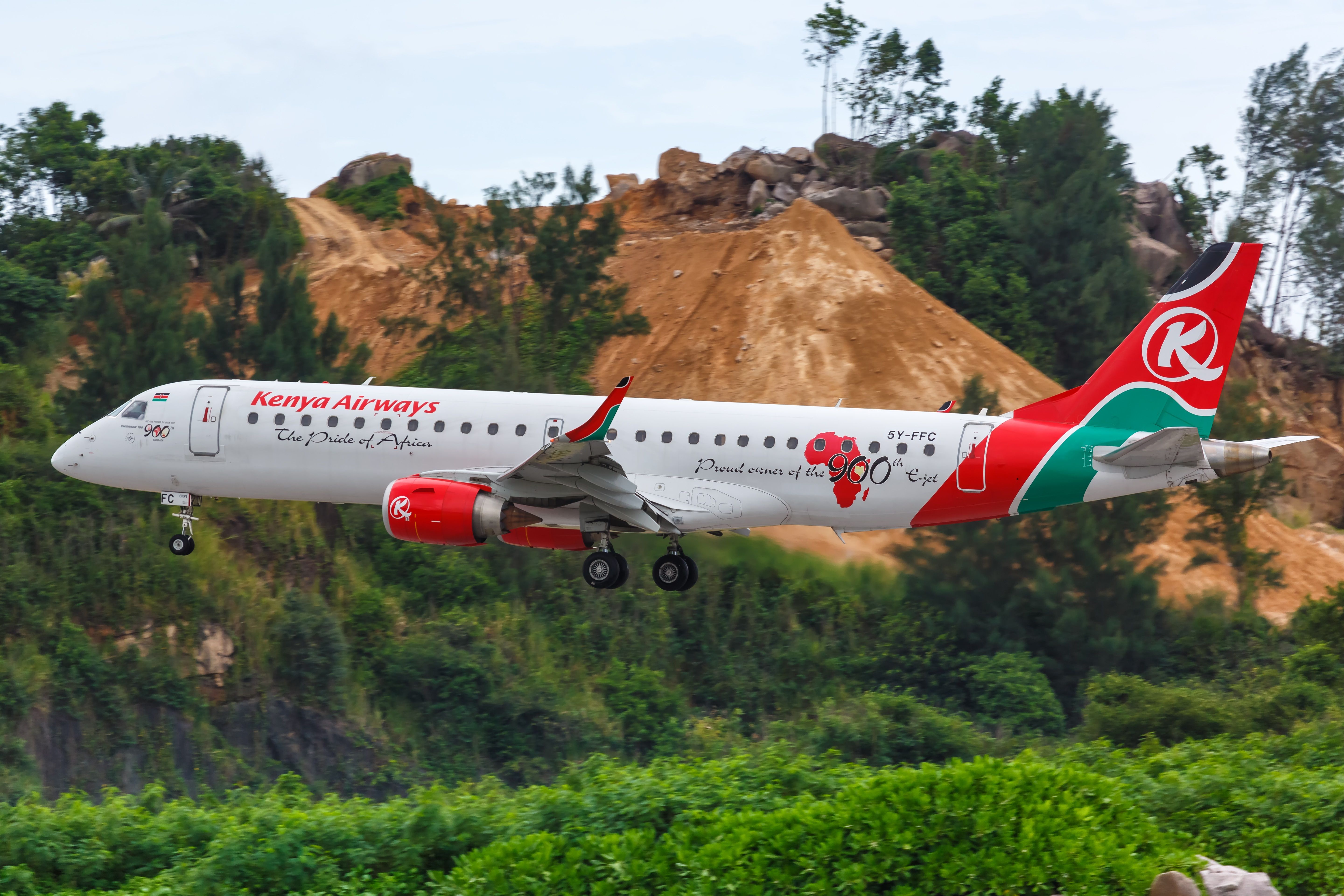On May 25, Kenya’s national carrier Kenya Airways (KQ) operated possibly probably the most sustainable business long-haul flight between Africa and Europe as a part of The Sustainable Flight Challenge (TSFC) by SkyTeam. The challenge is a friendly competition between members of the alliance.
The flight was operated on KQ’s Boeing 787 Dreamliner, departing Nairobi Jomo Kenyatta Airport (NBO) at 08:40 and arriving at Amsterdam Schiphol Airport (AMS) at 16:40. The whole Kenya Airways team worked tirelessly to ensure the flight was a hit.
KQ’s SAF-powered flight involved sustainable flight and ground operations, a sustainably curated in-flight menu, a customer carbon offsetting program, e-mobility for guests, travel light policies, and waste management initiatives.
Eni Sustainable Aviation Fuel
Kenya Airways used Sustainable Aviation Fuel (SAF) provided by Eni as a part of the challenge, making it the primary African airline to make use of any such fuel. For the flight, JetA1 fuel was mixed with Eni Biojet to significantly cut carbon emissions and reveal the longer term of world air travel.
Photo: Kenya Airways
Eni Biojet is the primary biogenic SAF. It is mixed with 20% of Eni’s Jet Fuel and made in Synergy with its Gela biorefinery solely from waste materials, animal fats, and used vegetable oils. The fuel is produced at the corporate’s Livorno factory and tested in research laboratories to make sure quality.
It’s also the primary exclusive batch of SAF to come back out of Eni’s Livorno refinery. The partnership between Eni and one among Africa’s most distinguished carriers is a big step towards the decarbonization of aviation within the continent. Kenya Airways CEO Allan Kilavuka said;
“Working with Eni Sustainable Mobility to pilot using Sustainable Aviation Fuel (SAF) puts us on the primary pathway to testing using Sustainable Aviation Fuel inside Africa. The information and insights generated from the pilot flight will probably be priceless to tell policy decisions, regulatory frameworks, and industry best practices related to SAF. This will probably be a big milestone for Kenya Airways and the broader African aviation industry.”
Along with reducing carbon emissions during flights, the production and use of Sustainable Aviation Fuels must reduce water usage, limit using pesticides and fertilizers, and never use land reserved for food production, significantly reducing deforestation.
Mixing jet fuel with biofuels
JetA1 fuel will be combined with as much as 50% of Eni Biojet because it comprises 100% biogenic feedstock. For the Nairobi-Amsterdam flight, it was mixed with conventional jet fuel, and Kenya Airways will proceed working with Eni to power flights going in another country.
Photo: Darryl Brooks / Shutterstock
As using biofuels continues to be being tested, such flights will provide priceless data and insights because the aviation industry works towards Net Zero by 2050. Moreover, the SAF-powered flights allow Kenya Airways to realize a competitive advantage within the continent. Eni CEO Stefano Ballista said;
“The provision of Eni Biojet to Nairobi Airport is a crucial step for Eni Sustainable Mobility since it confirms that the corporate can support airlines reminiscent of Kenya Airways of their path towards decarbonization.”
From 2025, all airlines operating flights from European airports will probably be required to include a portion of SAF. Kenya Airways seeks to reap the benefits of this sustainability momentum in keeping with EU guidelines for mixing jet fuels.
Sourcing raw materials from Africa
Eni currently produces aviation fuel with a 20% biogenic component, JetA1, and Eni Biojet. The corporate has signed agreements with various airlines, airports, and logistical operators to deliver it, with over 200,000 tonnes expected to be produced annually from 2024.
Photo: Markus Mainka I Shutterstock.
The mega-production requires a big supply of raw materials which will be sourced from Africa. Eni is seeking to develop a supply chain in Kenya to gather used cooking oil through collaborations with various firms within the food sector. This can even contribute to food waste management in Africa.
Eni and Kenya Airways will proceed working together for a greener future and reach a broader agreement for long-term collaboration. As importing Jet Fuel is probably the most significant costs for African airlines, the production of SAF within the continent could be essential for maintaining a sustainable African aviation market.
What do you think that of Kenya Airways’ SAF-powered flight? Tell us within the comments!









:quality(70)/cloudfront-us-east-1.images.arcpublishing.com/archetype/F5ERKB2GSZC7DOSER4SCJDZVSQ.jpg)
